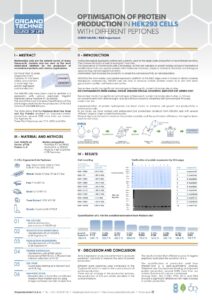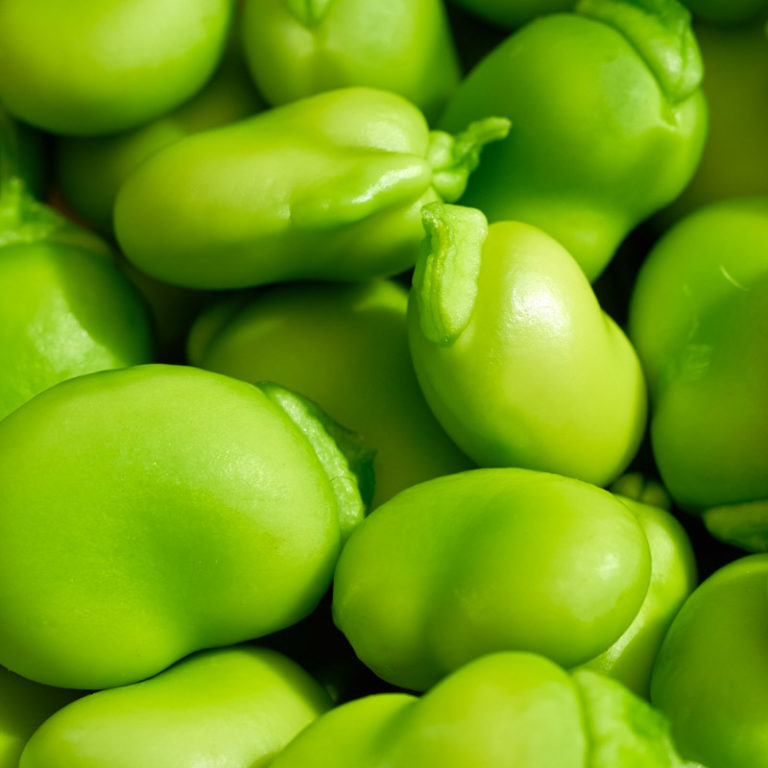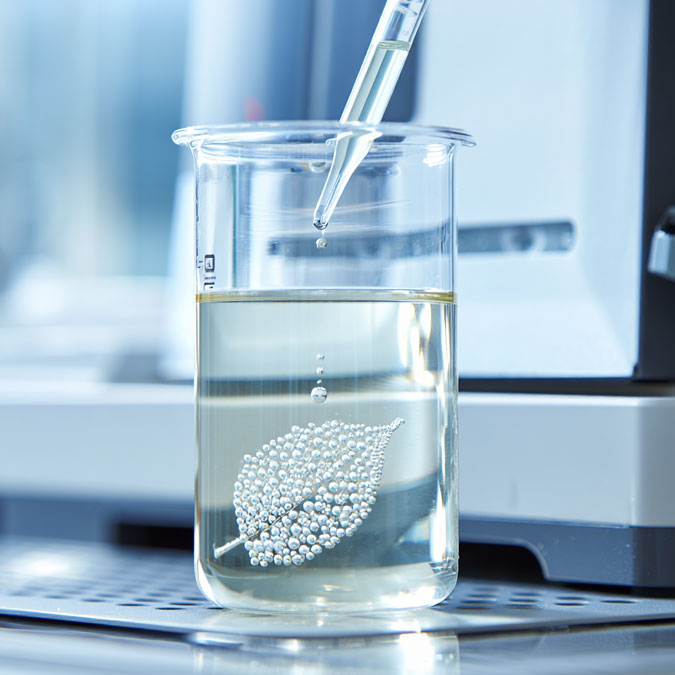Organotechnie R&D Dept. conducted a study to evaluate the performance of plant-derived Hydrolysates for protein production in HEK293 cell cultures. The research compared various hydrolysate sources against Tryptone N1, the standard supplement used post transfection in mammalian cell culture protocols.
The study used HEK293-6E cells with pTT28 vector to express His-tagged human interleukin-4 (hIL-4) in serum-free media supplemented with 0.5% Hydrolysate. Protein quantification was performed using Western blot analysis with anti-His tag antibodies at 120 hours post-transfection.
Results showed that three plant-based Hydrolysates produced higher yields than the control: C-CELL P112 (pea-derived) achieved 339% of control levels and C-CELL G115 (guar-derived) attained 324%. These represent approximately 150% increases over standard Tryptone N1 performance.
Plant-based Hydrolysate offer several practical advantages including absence of animal-origin contaminants, simplified downstream processing, and reduced regulatory concerns for therapeutic applications. The study maintained consistent culture conditions and production processes across all test conditions, with IL-4 protein being predominantly secreted into the culture medium.
These findings indicate that C-CELL plant-derived Hydrolysate can serve as efficient supplements in mammalian protein expression systems.
September 2025
More details in the poster here: Poster HEK293.pdf




